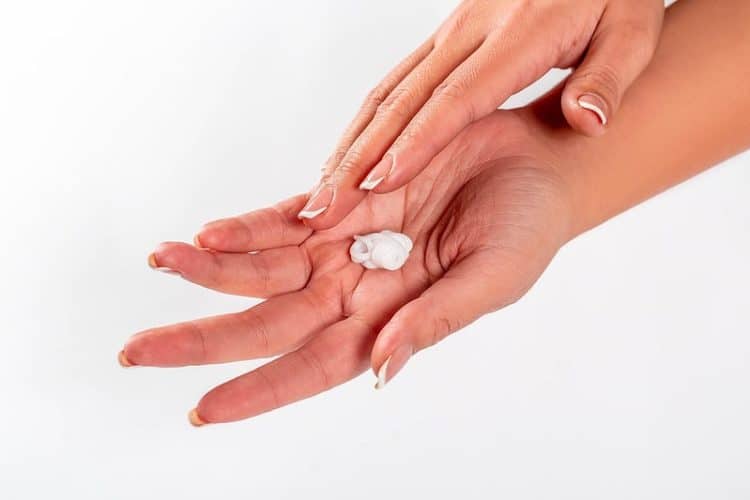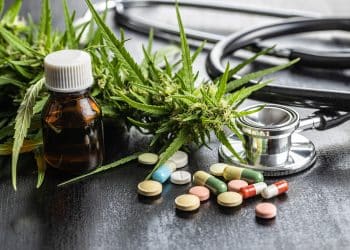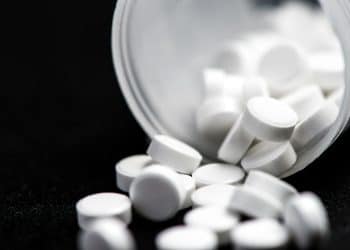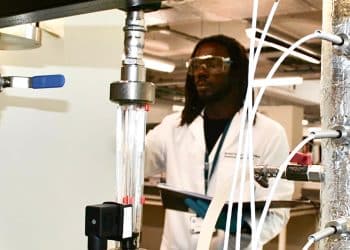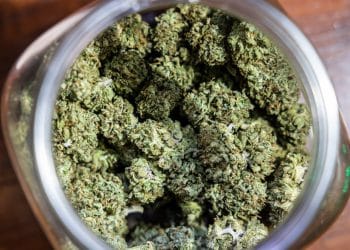Antioxidant and anti-inflammatory activity are among plants’ most sought after health benefits and have made plant extracts a staple of cosmetic and anti-aging skin products. In recent years, hemp has garnered attention for the antioxidant potential of its main compounds, including cannabinoids, terpenes, flavonoids, stilbenes, and lignans.
Antioxidant Effects
Harnessing the antioxidant power of hemp’s compounds requires effective extraction. In that spirit, a team of Polish scientists explored two extraction methods for hemp’s antioxidant and anti-aging properties on skin. [1]
The extractions employed water-ethanol (20:80) for 60 minutes followed by filtration and low-pressure evaporation. The scientists found that ultrasound-assisted extraction (UAE) and magnetic stirring-assisted extraction (a traditional method) produced extracts that scavenged the DPPH free radical—a marker of antioxidant activity—in a dose-dependent manner. Extracts from UAE reached 40% DPPH scavenging activity compared to 30% for magnetic stirring.
UAE vs Traditional Techniques
Compared to the traditional technique, UAE produced higher concentrations of cannabinoids, phenolic compounds (20% more), flavonoids (30% more), and chlorophyll (100% more).
Both types of hemp extract increased the activity of superoxide dismutase (SOD), “which is an enzyme that acts as the first stage of antioxidant defense and protects cells from damage by [reactive oxygen species],” which are basically free radicals, the byproduct of oxidative stress. Again, this property increases proportionately with extract concentration; it reached 178% with UAE and 165% with magnetic stirring.
Cytotoxicity of Hemp
The scientists also examined hemp extracts’ cytotoxicity to skin cells. Cytotoxicity damages cell membranes’ integrity, so high cytotoxicity levels would be too high of a price to pay for antioxidant activity.
“The results obtained in these studies indicate the lack of cytotoxicity of Cannabis sativa L. extracts to skin cells, especially fibroblasts, which may suggest their potential use as biologically active compounds in the pharmacological, dermatological and cosmetic industries.”
The researchers noted that hemp extracts significantly decreased the activity of enzymes that break down elastin and collagen, the major skin building proteins.
Hydrogel Properties
Another important stage of the study was the assessment of hemp extracts’ hydrogel properties, which are relevant for conditions like psoriasis and the general process of wound healing. Hydrogel properties reflect skin moisture, which is depleted by cleansing cosmetics, poor hydration, and more. This test was conducted on 15 volunteers.
Hydrogels containing hemp extracts were found to improve the skin condition significantly, again acting in a dose-dependent manner with as little as 0.5% hemp extract providing moisturizing benefits for up to 5 hours. At 0.5% concentration, there was no observable difference between UAE and magnetic stirring effects. However, at 1.0% concentration, the UAE extract’s moisturizing properties were better and lasted longer (10% versus 5% improvement after 5 hours).
The researchers believe hemp improves the skin’s condition on every level and has all the makings to become a staple of skin products.
Conclusions
“[The] effect of hemp extracts on skin hydration and the possibility of preventing the degradation of collagen and elastin fibers presented here indicates the value of these extracts. The lack of a negative effect on the metabolic activity and viability of skin cells indicate the legitimacy of including hemp extracts in the recipes of skin care cosmetics as well as medicinal preparations.”
Reference:
- Zagórska-Dziok M, Bujak T, Ziemlewska A, Nizioł-Łukaszewska Z. Positive effect of Cannabis sativa herb extracts on skin cells and assessment of cannabinoid-based hydrogels properties. Molecules. 2021;26:802. Impact Factor = 3.267; Times Cited = 1 (Semantic Scholar)
Image Credits: Marco Verch Professional Photographer / flickr, CC BY 2.0
